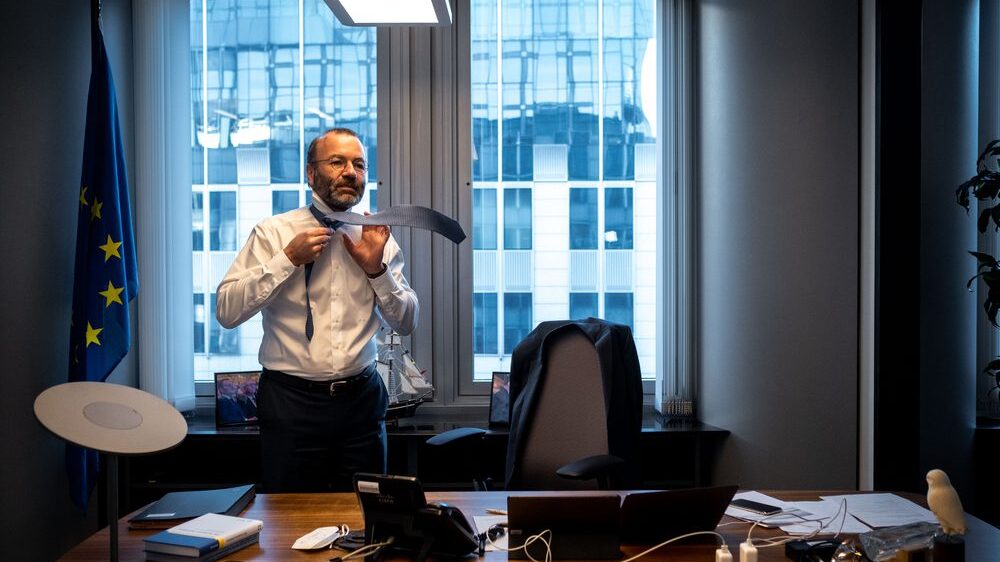
Manfred Weber
Ukraine and others can not join the European Union under the current system of the Lisbon Treaty, said EPP leader Manfred Weber while on a visit to Kyiv on Monday, February 28th, suggesting that the EU is slowly moving toward a more centralized future.
The leader of the European People’s Party traveled to Kyiv to assure local officials of his commitment to Ukraine and to discuss details of necessary European assistance to push back the Russian troops. While there, he urged EU leaders in Berlin and Paris to ramp up their weapons shipments, including long-range missiles, arguing that we are nearing a decisive moment in this war.
Ukraine’s future membership prospects were also on the table. Weber told Politico that the current framework under the Lisbon Treaty falls short of accommodating any newcomers at the moment. A historic round of enlargement is still in the works, but the EU would need to implement a complete overhaul with sweeping reforms first, including a more centralized power structure and reforming the internal voting mechanisms.
“Ukraine’s accession to the EU will only work if the European Union itself is capable of reform. Everyone knows that today’s EU with the Lisbon Treaty is not capable of absorbing new members,” Weber said, referring not only to Ukraine, but other EU candidates as well, including Western Balkans and South Caucasian countries. “There is a big, historic enlargement package coming up—so leaders must seriously prepare now.”
Had a good discussion w/@EPPGroup delegation led by @ManfredWeber on further steps of Ukraine’s EU integration. It's already clear: Ukraine’s membership will change the EU, lets together shape and prepare the way to this stronger Union.@AndriusKubilius @Kalniete @paoloalli pic.twitter.com/UZUdiUYTTl
— Olga Stefanishyna (@StefanishynaO) February 28, 2023
Critics of the European Union’s “ever-closer” integration process have long been suspicious of systemic reform proposals at the core of the EU. In fact, the Lisbon Treaty, signed in December 2007, was already viewed by some as taking away too much of the member states’ national sovereignty in order to strengthen Brussels—as well as taking the first worrying step toward a federalized future.
Weber’s remarks appear to be suggesting just that: more central power to the EU and less opportunity for member states to pursue independent interests. Although he discussed no details of this overhaul, Weber did mention reforming the voting process in the Council.
Referring to the difficulties around passing sanction packages due to some members using their veto powers, Weber said that “it should be clear, after a year, that we need new voting rules to decide sanctions,” and urged Germany and others to push for introducing qualified majority voting in the Council, effectively circumventing individual countries’ ability to block a resolution. “Given our experience,” he said, “now would be the right time to decide to abolish unanimity.”
Introducing qualified majority voting would also mean that the EU could impose punishment—such as the rule of law mechanism—much easier on countries it deems to be in violation of European values, such as Poland and Hungary in the past. Any such reforms, therefore, would effectively cripple member states’ ability to challenge the bloc’s mainstream political and ideological directions, including divisive issues such as immigration or LGBT rights.
Such systemic reforms cannot happen overnight, of course. Even if the majority of EU members will eventually subscribe to Weber’s ideas, it would take years to negotiate and implement them. This, in turn, gives valuable time for sovereigntist governments to adequately prepare, but also means that Ukraine and other candidates should accept that they might need to be in limbo for longer than anticipated.
